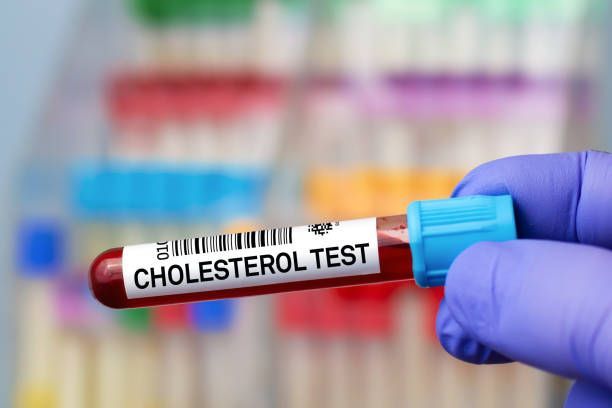What Are the Workplace Burnout Symptoms?
Burnout is more than just feeling tired after a long workweek; it’s a chronic state of emotional, mental, and physical exhaustion caused by prolonged and excessive workplace stress. As more people continue to push through demanding schedules and high-pressure environments, burnout has become a common experience across industries and professions.
Understanding the symptoms of workplace burnout can help you recognize it early, take proactive steps to manage it, and protect your long-term health and well-being.
What Is Workplace Burnout?
The World Health Organization (WHO) defines burnout as an occupational phenomenon resulting from chronic workplace stress that has not been successfully managed. It is not classified as a medical condition, but it can significantly impact both personal health and professional performance.
According to WHO, burnout is characterized by three key dimensions:
- Feelings of energy depletion or exhaustion
- Increased mental distance from one’s job, or feelings of negativism or cynicism
- Reduced professional efficacy
Common Symptoms of Workplace Burnout

Burnout can look different for everyone, but the following symptoms are often reported by people experiencing it:
1. Physical Exhaustion
- Constant fatigue, even after a full night’s sleep
- Headaches, muscle aches, or stomach problems
- Changes in sleep or appetite
- Frequent illnesses due to a weakened immune system
2. Emotional and Mental Drain
- Feeling overwhelmed or helpless
- Mood swings, irritability, or emotional outbursts
- Lack of motivation or interest in work tasks
- Anxiety or depression symptoms
- Difficulty concentrating or remembering things
These mental symptoms often interfere with your ability to function both professionally and personally.
3. Cynicism and Detachment
- Becoming increasingly negative or critical at work
- Feeling disconnected from coworkers or the company mission
- Avoiding work-related responsibilities
- A sense of failure or loss of self-confidence
Detachment can be subtle at first, such as dreading the start of the workday or mentally checking out during meetings.
4. Reduced Job Performance
Workplace burnout is rarely caused by one single factor.
It’s often the result of several overlapping stressors:
- Heavy workload and unrealistic deadlines
- Lack of control over decisions or how work is done
- Poor work-life balance
- Unclear job expectations
- Toxic or unsupportive work environment
- Little recognition or reward for your efforts
Even if you love your job, you can still experience burnout if the stress becomes too much to manage over time.
How to Manage or Prevent Burnout
✔️ Set Healthy Boundaries
Learn to say no to non-essential tasks and avoid taking work home when possible. Set clear start and end times to protect your personal time.
✔️ Take Regular Breaks
Schedule breaks throughout the day to recharge. Even a short walk, a few minutes of deep breathing, or stepping away from your screen can make a difference.
✔️ Talk About It
Communicate with your manager or HR department if you’re feeling overwhelmed. They may be able to adjust your workload or offer support.
✔️ Seek Social Support
Lean on trusted coworkers, friends, or family. Talking about your challenges can provide relief and perspective.
✔️ Practice Self-Care
Exercise regularly, eat balanced meals, get enough sleep, and engage in hobbies you enjoy. These habits improve resilience and emotional well-being.
✔️ Consider Professional Help
If burnout is affecting your health or relationships, speaking with a mental health professional can help you develop coping strategies and regain control.
Is It Stress or Burnout?
Understanding the difference between typical stress and burnout is key to knowing when to take action.
Stress Is Temporary and Task-Based
Work-related stress is often linked to a specific project, deadline, or responsibility. It can be short-term and may even boost your productivity for a time. Once the task is completed or you take a break, the stress usually subsides, and your energy returns.
Burnout Is Chronic and Persistent
Burnout doesn’t fade after rest. It builds up over time and is often the result of prolonged, unmanaged stress. You may feel emotionally exhausted, mentally detached from your job, or struggle to find any motivation to continue.
Stress Pushes You — Burnout Drains You
Stress might push you to work harder, meet goals, or power through challenges. Burnout, by contrast, makes you feel helpless, unmotivated, and disconnected from your purpose or performance.
Recovery Looks Different
With stress, a good night’s sleep or a weekend off can help you reset. With burnout, even extended time away from work may not bring relief. You may need to reassess your workload, boundaries, or even your role to fully recover.
When to Take Action
If you notice that burnout symptoms are lasting more than a few weeks or are beginning to affect your physical health, it’s time to act.
Left unchecked, burnout can lead to:
- Depression or anxiety disorders
- Chronic fatigue
- Sleep disturbances
- Cardiovascular problems
- Substance abuse
Addressing burnout early can help you avoid long-term damage to your health and career.

Walk In With Us
While burnout itself doesn’t typically require urgent care, some of its physical symptoms like fatigue, headaches, or unexplained illnesses, might. If you're feeling physically unwell and need quick answers, walk in with us at UrgiClinic. Our team is here to help with your urgent health concerns; no appointment needed.













